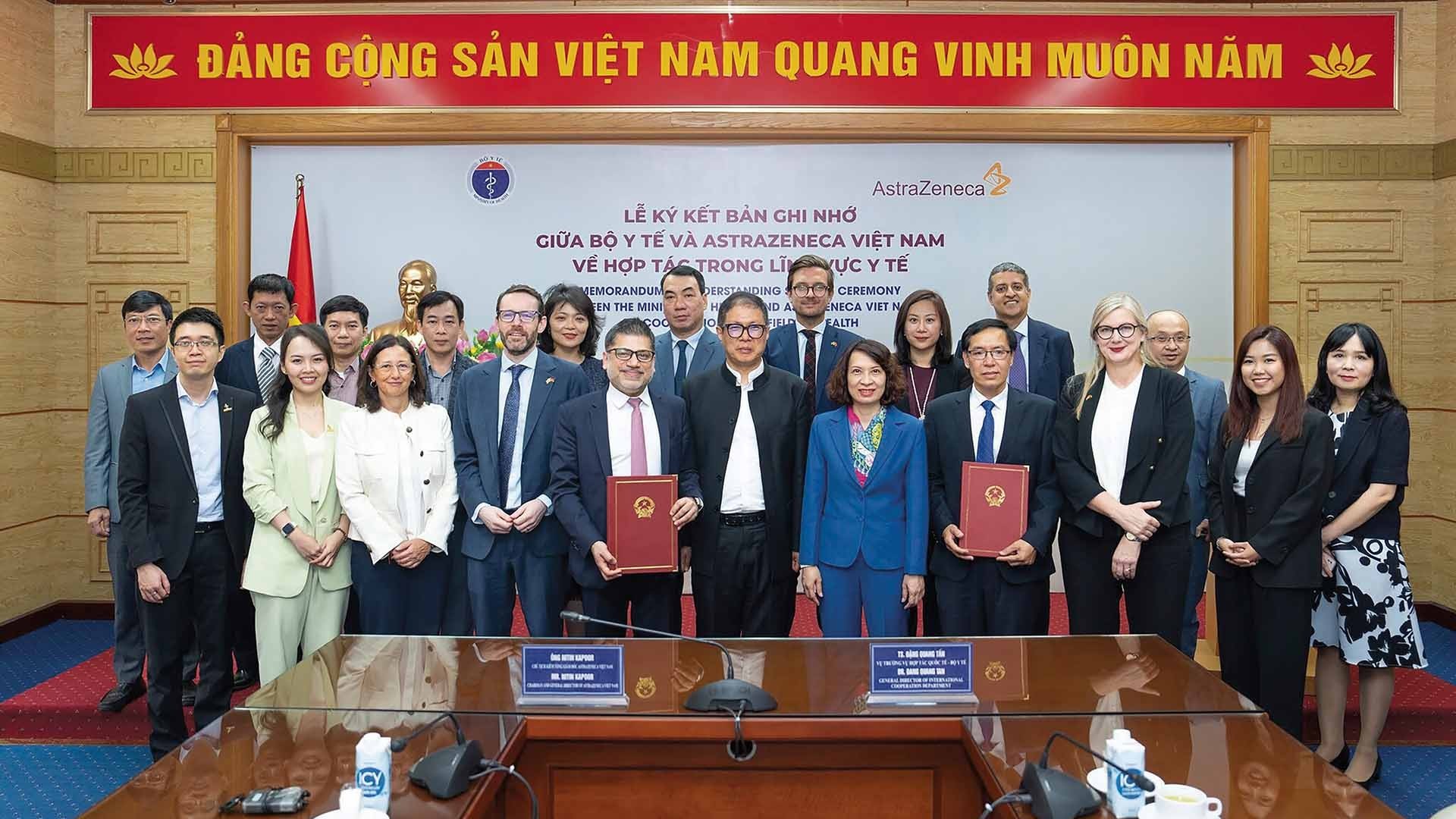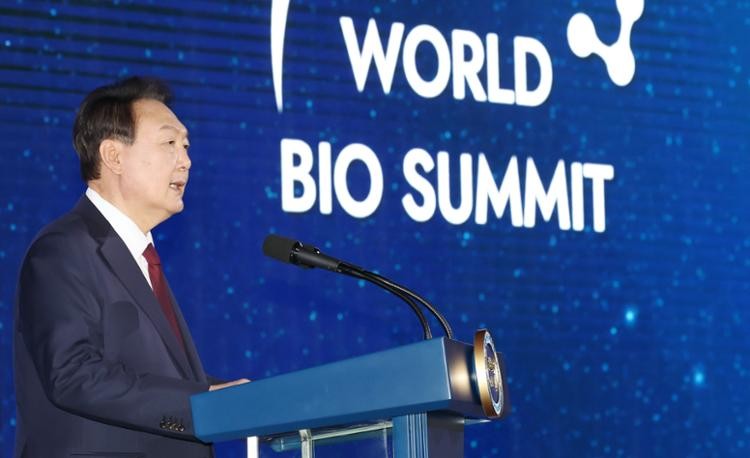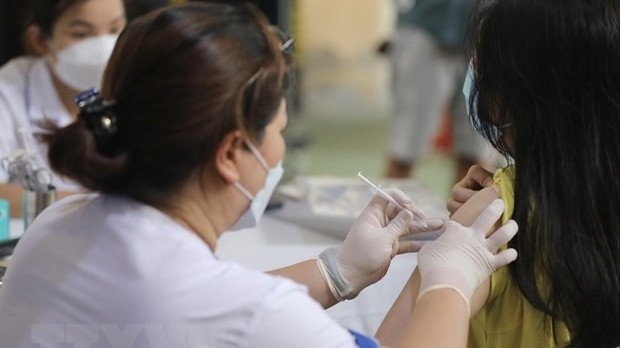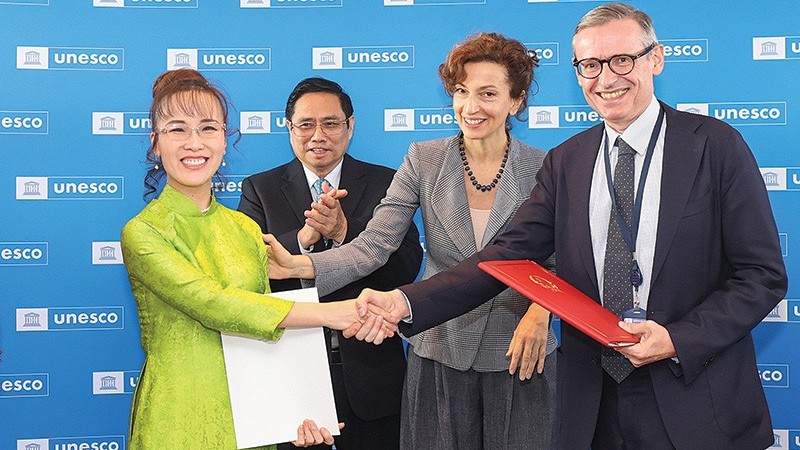
Vaccine diplomacy – more than a lesson on emergency pandemic response
Latest
Vaccine diplomacy amid a new context
At present, Vietnam has entered a new phase of flexible, long-term adaptation and effective control of the COVID-19 pandemic. Given the complex nature of the SARS-CoV-2 virus, especially the emergence of Omicron and other new variants, it will continue to embark on its ongoing vaccine diplomacy policy in the year ahead as it seeks to support the COVID-19 fight and boost economic recovery.
“We have basically ensured a sufficient supply of COVID-19 vaccines for domestic use. However, we will still keep a close watch on the pandemic in the world to take appropriate measures so as to have enough vaccines on hand for local use", said Nguyen Minh Hang, assistant to the Foreign Minister and member of the Government’s Working Group on vaccine diplomacy.
With regard to vaccination for children aged between five and 11, Hang noted Viet Nam will continue to closely follow recommendations put forward by professional organisations, especially those given by the World Health Organisation (WHO). In addition, it will strive to learn from other countries so that it can promptly and actively access vaccines for children in this age group.
Along with vaccine access, Hang stressed that it is now time to lobby for greater access to COVID-19 drugs. In line with this policy, the Government has assigned the Ministry of Foreign Affairs and the Ministry of Health to closely monitor the manufacturing of COVID-19 drugs globally and work alongside partners for prompt access to supply sources.
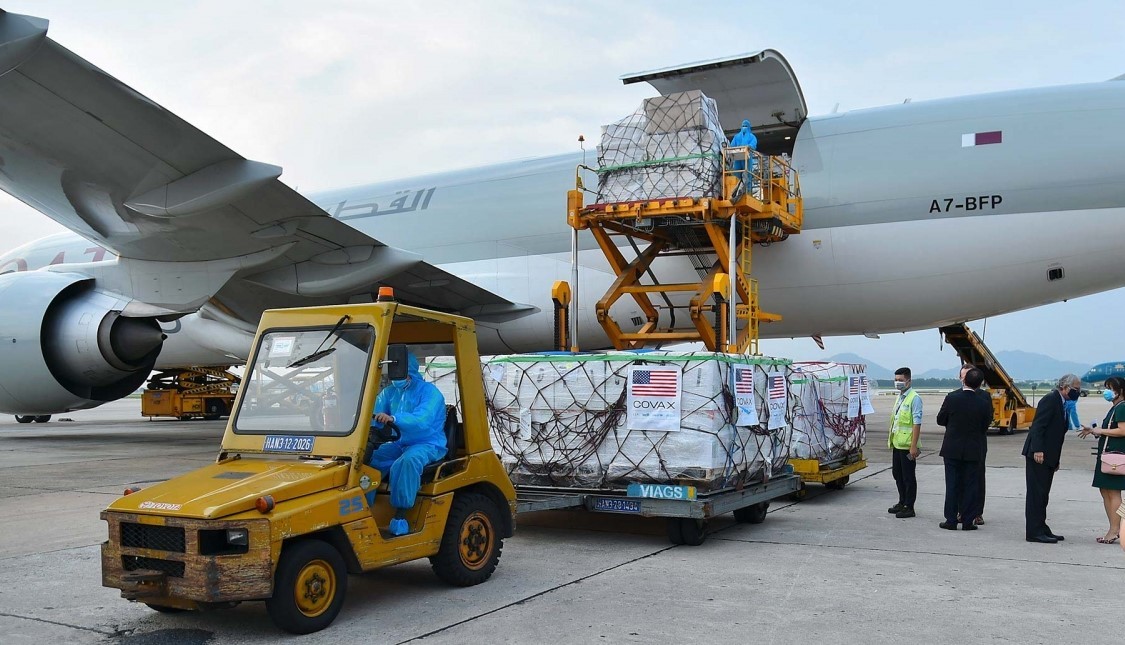 |
| Viet Nam has received COVID-19 vaccine shipments from donors. |
“Prompt access to COVID-19 drugs will be our top priority in the coming time", said Hang, when talking about the drug diplomacy strategy with VOV.VN, “Vietnamese representative missions abroad are required to work closely with partners in their host countries to explore, make recommendations and report back to authorities for appropriate access".
Hang also stressed the need to increase international co-operation in technology transfer for vaccine and drug production to allow the country to become self-sufficient in vaccines and drugs over the long term.
Furthermore, she suggested that Vietn Nam continue to ramp up co-operation with its partners to improve its healthcare capacity and share its experiences, especially in the grassroots-level health care. Accordingly, it will move to lobby other countries to provide medical equipment, as well as to co-operate in investing in healthcare services and pharmaceutical manufacturing in an effort to help the develop and improve the capacity of the local healthcare system over the long run.
Vaccine diplomacy – more than a lesson
The country has learnt a number of lessons after implementing its vaccine diplomacy policy, according to diplomats.
“Perhaps the biggest lesson we have learnt is to properly identify the key task of diplomacy and to best respond to domestic needs at each time", affirmed Hang.
Hang recalled that 13th National Party Congress held in early 2021 clearly stressed the pioneering role of foreign affairs in creating and maintaining a peaceful and stable environment, particularly with regard to mobilising external resources, for national development.
The facts indicate that all officials and staff of the diplomatic sector have been mobilised to work on this front, leading to encouraging results. This provides the Ministry of Foreign Affairs and Vietnamese representative missions abroad a significant lesson on how to maximise the power of diplomacy and take advantage of external resources for national development.
Discussing the ins and outs of vaccine diplomacy, Vietnamese Ambassador to Austria Nguyen Trung Kien frankly assessed that some countries willingly offer vaccines at no cost, while some others set certain conditions.
“If they set conditions, we have to accept the rule in order to meet our urgent need first, and then try to seek solutions to long-term issues", said the diplomat.
Vietnamese Ambassador to the UK Nguyen Hoang Long also pointed out that the country has been active in lobbying its suppliers for vaccine assurance and delivery during the height of the pandemic. It established a close and effective co-operation relationship with pharmaceutical firm AstraZeneca by signing the first batch of its vaccines.
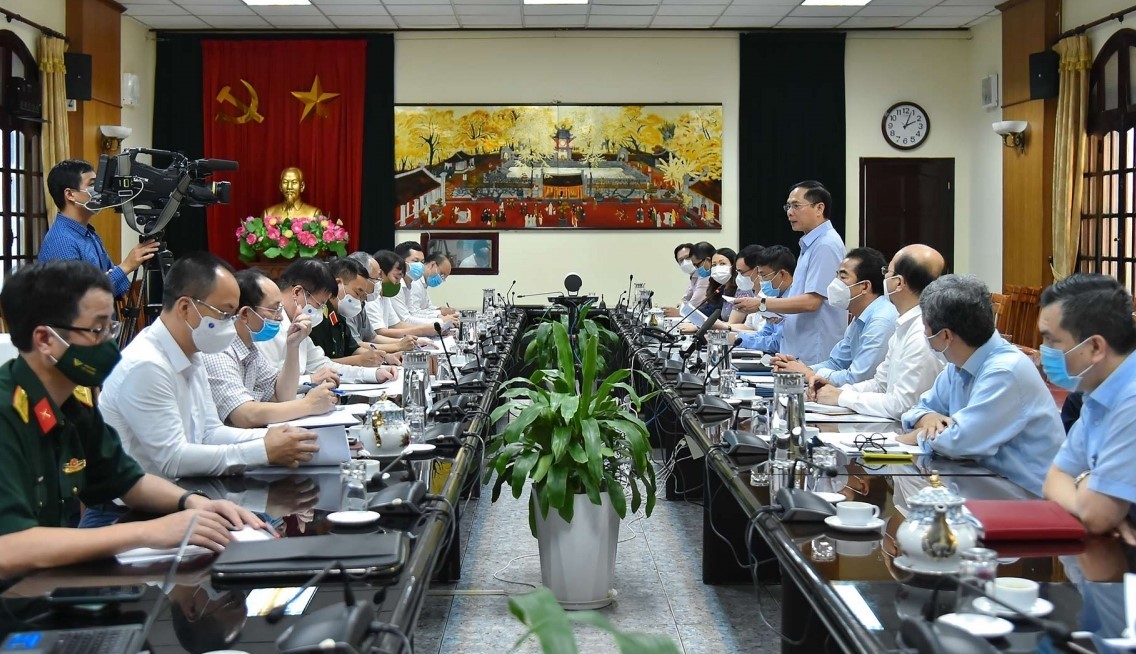 |
| Foreign Minister Bui Thanh Son chairs a meeting of the Government working group on vaccine diplomacy. |
“We have also lobbied the British government to provide vaccine aid at a time when vaccines were in short supply globally. Fortunately, the UK has included Viet Nam on the list of first recipients of its vaccine aid when the outbreak reached its peak in the country. This was also a success of our vaccine diplomacy policy", said Ambassador Long.
Meanwhile, Vietnamese Ambassador to the EU Nguyen Van Thao attributed the success to Viet Nam’s increasing prestige and position globally, noting that country has a network of loyal friends with closely-linked interests. In addition, it has also affirmed its role within the global value chain, meaning that the global supply chain will be disrupted at some point in the event that the country is badly impacted by the pandemic.
“We used this argument to convince EU countries that vaccines not only help Viet Nam but also European countries. They were all aware of this argument and decided to donate vaccines to Viet Nam", said Ambassador Thao.
The success of the vaccine diplomacy strategy represents a decisive factor in the country controlling the pandemic, opening its economy, along with developing and integrating in the ‘new normal’ period.
Vaccine diplomacy means not only accessing and importing vaccines, but also ramping up co-operation in technology transfer. This represents a fundamental issue that the country must focus on to ensure a long-term and stable source of vaccines for local use.
Moving forward, vaccine diplomacy will be promoted to help the country meet its goal of producing its own COVID-19 vaccines and turning it into a vaccine production hub both in the region and throughout the rest of the world.




